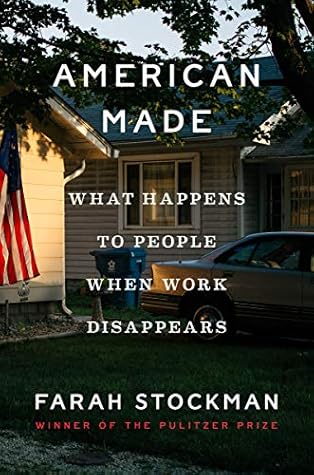A bookstore owner in Minneapolis whose neighborhood had gone up in flames after George Floyd’s death told me that the destruction hadn’t surprised him: “People are furious and traumatized and unemployed.” Unemployed. That was the difference. Because of the pandemic, tens of millions of people had been out of work, stuck at home looking at their phones when the video of George Floyd’s death hit. After months of social isolation in lockdown, the protests had given jobless people something important to do, a community to do it with, and a sense of common purpose.
Welcome back. Just a moment while we sign you in to your Goodreads account.


